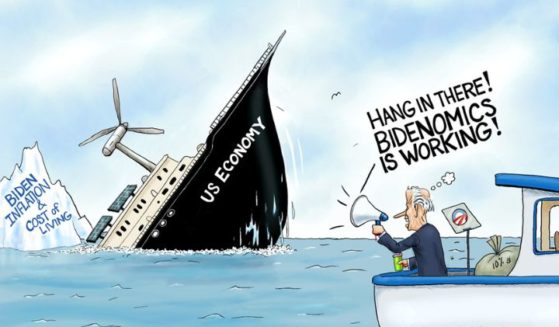US ambassador pledges support for Mediterranean pipeline
JERUSALEM (AP) — Prime Minister Benjamin Netanyahu on Thursday said that Israel, Greece and Cyprus will sign an agreement early next year to build a pipeline to carry natural gas from the eastern Mediterranean to Europe, while the United States pledged its support for the ambitious project.
The $7 billion project, expected to take six or seven years to complete, promises to reshape the region as an energy provider and dent Russia’s dominance over the European energy market. It also could curtail Iranian ambitions to use Syria as a gateway to the eastern Mediterranean.
Speaking at a summit with the Greek and Cypriot leaders in southern Israel, Netanyahu said the three nations reaffirmed their commitment to the pipeline and discussed “important aspects” of the project. Italy is also a partner in the pipeline’s planning. Cyprus President Nicos Anastasiades said the project is waiting for a green light from the European Union to move forward.
“We’re going to sign formally, officially, this agreement in a few months,” he said.
In another boost for the project, U.S. Ambassador David Friedman hailed the pipeline as integral to the “stability and prosperity of the Middle East and Europe,” and urged all countries in the region to ensure its success.
Washington is eyeing the east Mediterranean with renewed interest. In a meeting with the Greek foreign minister earlier this month, U.S. Secretary of State Mike Pompeio called the region “an important strategic frontier” for Washington, which is working to strengthen its relations with “democratic allies there like Greece and Cyprus and Israel.”
Israel has been developing natural gas fields off its Mediterranean coast for the past decade. Its “Tamar” field already is operational, while the larger “Leviathan” field is expected to be operational next year. While most of its gas is used domestically, it has signed export deals with Egypt and Jordan and has its eyes on the larger European market.
The proposed pipeline would allow Israel and Cyprus to export their recently discovered offshore reserves to Italy and eventually to the rest of Europe. Greece, which would act as a conduit for the gas to the continent, could also use the pipeline to convey any hydrocarbons potentially found in its own waters.
This would potentially transform the countries’ economies while also diversifying Europe’s gas supply and reduce its dependence on Russia. Developing the region’s hydrocarbon reserves would also serve to curb Teheran’s bid to “open a window” to the east Mediterranean through Syria, Assistant Secretary of State Wess Mitchell told Greek language newspaper Kathimerini in an interview published this week.
At Thursday’s summit, the leaders offered no details of a construction timeline. The countries also pledged to cooperate in cyber security, while Israel and Cyprus signed a preliminary deal on technical cooperation and Israel and Greece reached a framework agreement on satellite technology.
___
Associated Press writer Menelaos Hadjicostis in Nicosia, Cyprus, contributed reporting.
The Western Journal has not reviewed this Associated Press story prior to publication. Therefore, it may contain editorial bias or may in some other way not meet our normal editorial standards. It is provided to our readers as a service from The Western Journal.
Truth and Accuracy
We are committed to truth and accuracy in all of our journalism. Read our editorial standards.












